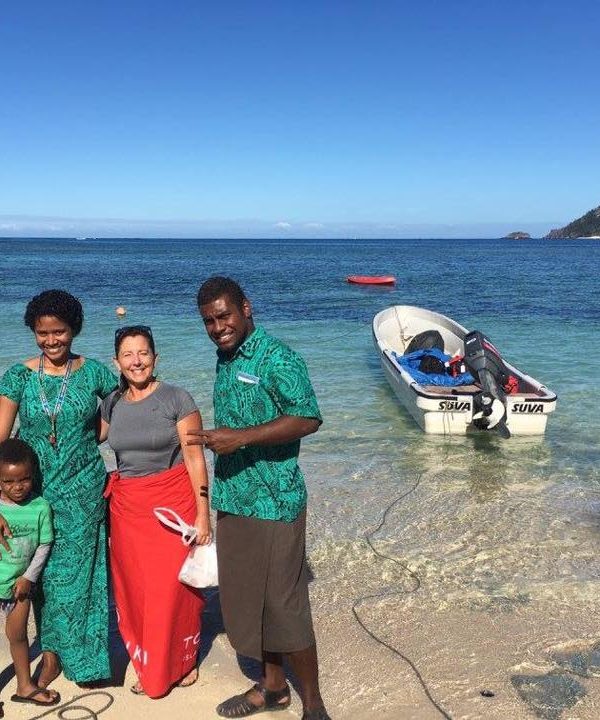Fiji and Vanuatu, with their vibrant cultures and warm communities, are grappling with the challenges of mental health. To address this pressing issue, volunteering can become a powerful catalyst for positive change. We have a new program in Fiji or Vanuatu (dependant on numbers) and are looking to find a small team for next year (June/July).
Understanding the Need
Mental health is a global concern, and the Pacific Islands are no exception. Fiji and Vanuatu, despite their paradisiacal surroundings, face challenges in providing adequate mental health services to their populations. Limited resources, cultural stigmas, and geographic isolation contribute to the existing disparities in mental health care.
The Mental Health Outreach Program aims to bridge this gap by offering support and resources to those in need. Volunteers play a crucial role in this endeavour, bringing their skills, compassion, and dedication to make a tangible difference in the lives of individuals struggling with mental health issues.
The Scope of the Problem
In the idyllic landscapes of Fiji and Vanuatu, beneath the surface of paradise, mental health challenges persist, posing significant obstacles to the well-being of the local populations. While these Pacific island nations boast vibrant cultures and tight-knit communities, they can struggle with unique challenges that impact mental health on individual and societal levels.
- Limited Resources: One of the primary challenges faced by Fiji and Vanuatu is the scarcity of mental health resources. Both countries encounter difficulties in providing adequate mental health services, ranging from a shortage of mental health professionals to limited funding for mental health programs. This scarcity leaves many individuals without access to the support and care they need.
- Geographic Isolation: The geographical isolation of these islands exacerbates the challenges of accessing mental health services. Remote and rural areas often lack the necessary infrastructure and resources, making it difficult for individuals in these regions to receive timely and comprehensive mental health care. Transportation and communication barriers further compound the issue.
- Cultural Stigmas: Cultural attitudes towards mental health play a significant role in shaping how communities perceive and address these issues. In both Fiji and Vanuatu, there exist cultural stigmas surrounding mental health problems. Mental health challenges are sometimes misunderstood or attributed to supernatural causes, leading to individuals facing social isolation and discrimination.
- Natural Disasters: Both Fiji and Vanuatu are susceptible to natural disasters such as cyclones and earthquakes. These events can have profound and lasting effects on mental health. The trauma, loss, and displacement caused by natural disasters contribute to heightened stress, anxiety, and depression among affected communities.
- Post-Colonial Legacies: The historical legacies of colonisation continue to influence mental health in these nations. Socioeconomic disparities, cultural disruptions, and the introduction of new societal norms have contributed to a complex interplay of factors that impact mental well-being. Addressing mental health requires an understanding of these historical contexts and their implications.
- Youth Mental Health: The younger generation in Fiji and Vanuatu faces unique challenges related to mental health. Social pressures, limited educational and employment opportunities, and the impact of globalization contribute to stressors that can affect the mental well-being of youth. Addressing youth mental health is crucial for building resilient and healthy communities.
- Substance Abuse Issues: Substance abuse is a significant contributor to mental health challenges in both nations. Limited access to rehabilitation services, coupled with social and economic factors, can lead to the perpetuation of substance abuse issues. Addressing mental health must also involve tackling the root causes of substance abuse and addiction.
- Gender-Specific Challenges: Gender-specific challenges contribute to mental health disparities in Fiji and Vanuatu. Issues such as gender-based violence, unequal access to education and employment, and societal expectations can disproportionately affect the mental well-being of individuals based on their gender. A holistic approach to mental health must address these gender-specific challenges.
Addressing Mental Health Challenges: The Role of Volunteers
Volunteers participating in the Mental Health Outreach Program in Fiji and Vanuatu play a pivotal role in addressing these multifaceted challenges. By understanding the unique context and complexities of mental health in these nations, volunteers can tailor their efforts to make a meaningful impact.
will include immersing with the local community offering support to disadvantaged communities, women and children who have escaped domestic violence, mental health checks, counselling support, occasional walk-and-talk therapy and group work. Volunteers will have a qualified supervisor in either the Counselling or Psychology field. Some public health activities such as education and working alongside our nutrition and public health teams may occur during the intake.
Gain face to face counselling experience whilst providing support to disadvantaged communities.
Participating in our mental health volunteer outreach project is a perfect way to share your passion and experience with those in need. While offering help, you too will benefit, as you will be learning new skills and obtaining hands-on experience.
Learn More…
Fiji: https://volunteering.org.au/projects/fiji/mental-health-outreach-in-fiji
Vanuatu: https://volunteering.org.au/projects/vanuatu-2/mental-health-support-in-vanuatu
 Involvement Volunteers International
Involvement Volunteers International 

